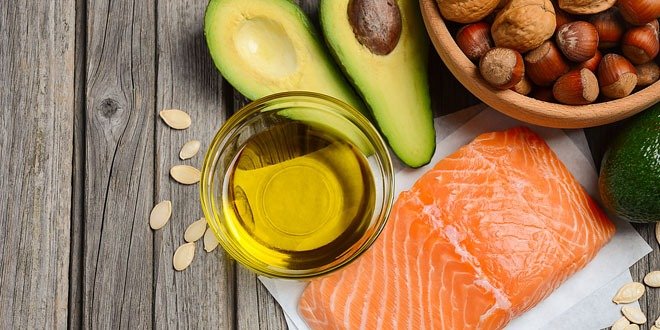
Fats are an important component of your diet. The fats that you eat give your body the energy it needs to work properly. You also need fat to keep your skin and hair healthy, absorb vitamins and insulate your body to help keep you warm.
Diabetes Canada’s clinical practice guidelines recommend that fats should comprise between 20% and 35% of your daily nutritional intake. However, the types of fats you eat are a very important consideration, as some are much healthier than others. And because people with diabetes have a higher risk of heart disease and stroke, it’s important that you focus on eating healthier fats. We’ll review the different types of fats in this article.
Monounsaturated fats
Monounsaturated fats are known as “good” or “healthy” fats because they can lower low-density lipoprotein (LDL) cholesterol levels (the “bad” cholesterol). Diabetes Canada recommends that these types of fats should comprise about 20% of your total daily calorie intake. Foods that contain monounsaturated fat include:
- Canola, grapeseed and peanut oils
- Olives and olive oil
- Some nuts (for example, almonds, cashews, pecans and macadamias)
- Nut butters
- Avocados
Polyunsaturated fats
Polyunsaturated fats are also healthy fats, as they help lower LDL cholesterol levels. Diabetes Canada recommends that these types of fats should comprise about 10% of your total caloric intake. Foods that contain polyunsaturated fat include:
- Fish, such as salmon, mackerel, herring, tuna and trout
- Plant oils (for example, canola, soybean or sunflower)
- Flax seeds
- Walnuts
- Pumpkin and sunflower seeds
Saturated fats
Saturated fats are less healthy fats, as they can raise LDL cholesterol levels. Diabetes Canada recommends that these types of fats should be restricted to less than 7% of your total caloric intake. Foods that contain saturated fats include:
- Some meats, such as regular ground beef, bologna, hot dogs, sausage and bacon
- Lard
- Dairy products, such as some yogurts, most cheese, cream, ice cream and whole milk
- Palm and coconut oils
- Poultry (chicken and turkey) skin
Trans fats
Trans fats are very unhealthy fats, as they can raise LDL cholesterol levels. Diabetes Canada recommends that these types of fats kept to a minimum in your daily diet. Foods that contain trans fats include:
- Processed snack foods (for example, crackers and potato chips)
- Processed baked goods (for example, muffins, cookies and cakes)
- Hard margarine
- Shortening
A word about fat content in foods
While you may be aiming to decrease the amount of fat you eat by choosing “low fat” versions of your favourite foods, such as flavoured low-fat yogurts, foods that are advertised as low fat may not actually be a healthier choice than higher-fat foods, as the fats are sometimes replaced by unhealthy ingredients such as sugars and starches.
While fat is an important component of your nutrition plan, choose healthier fats – such as monounsaturated fats and polyunsaturated fats – and avoid unhealthier fats when planning your daily diet.


